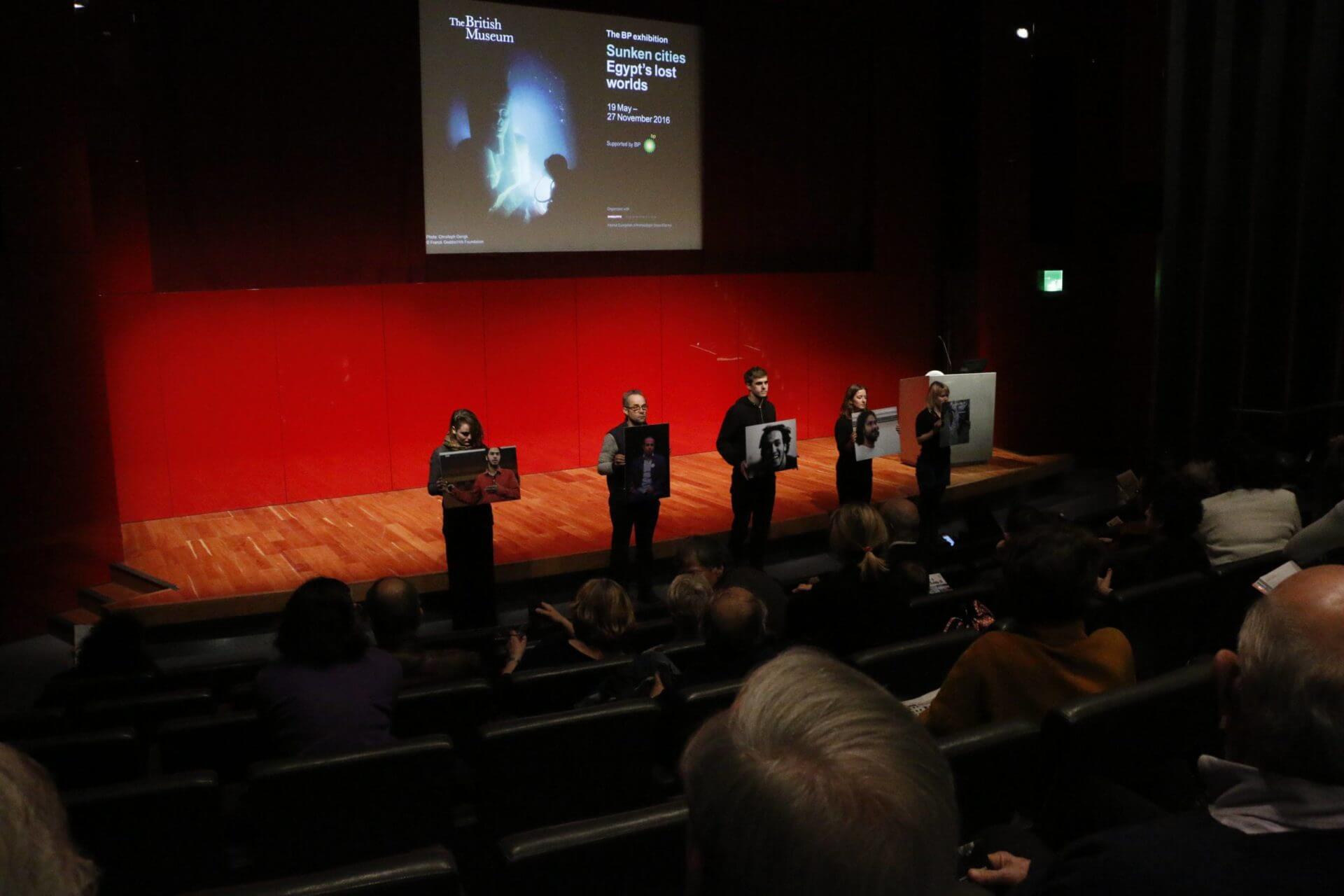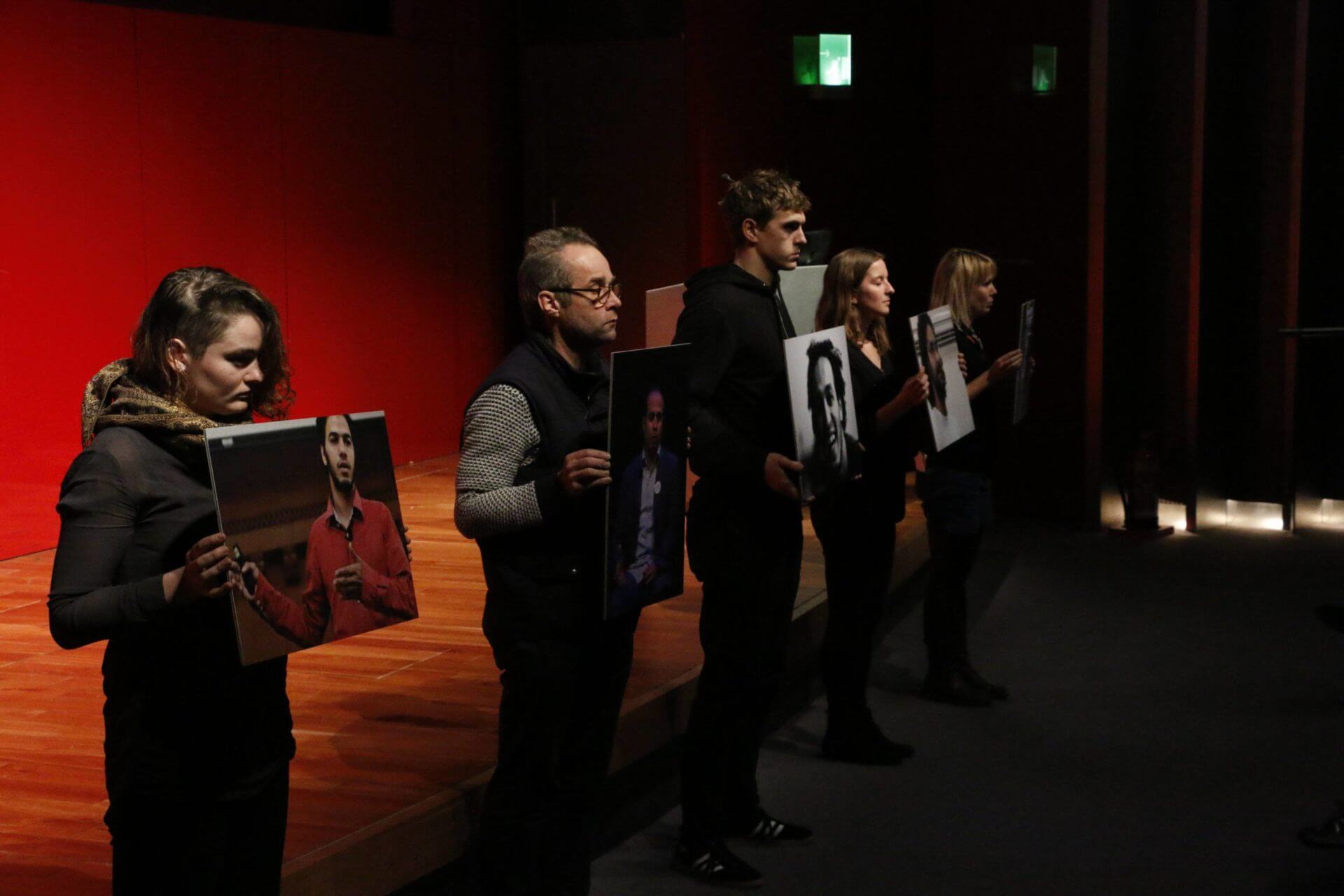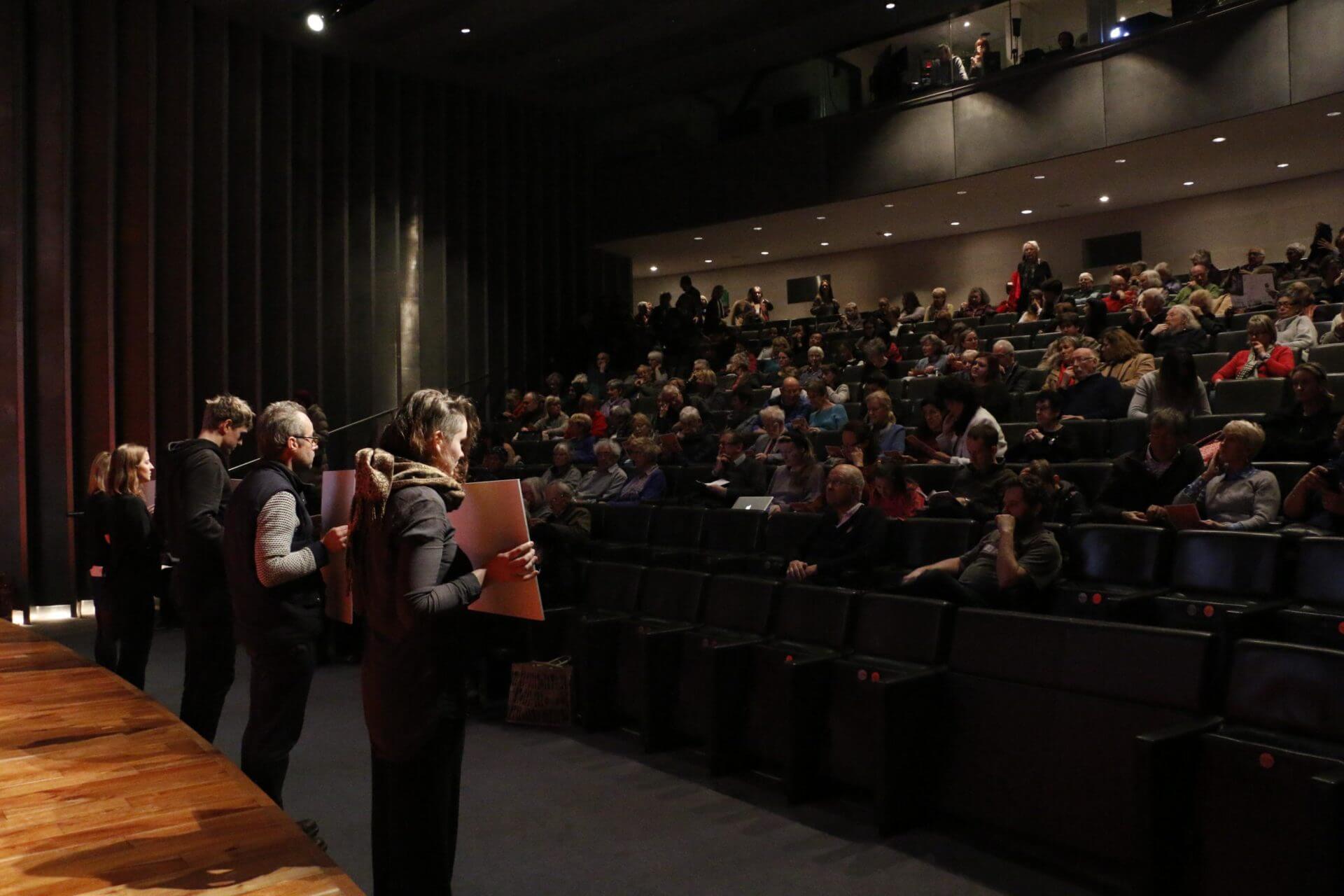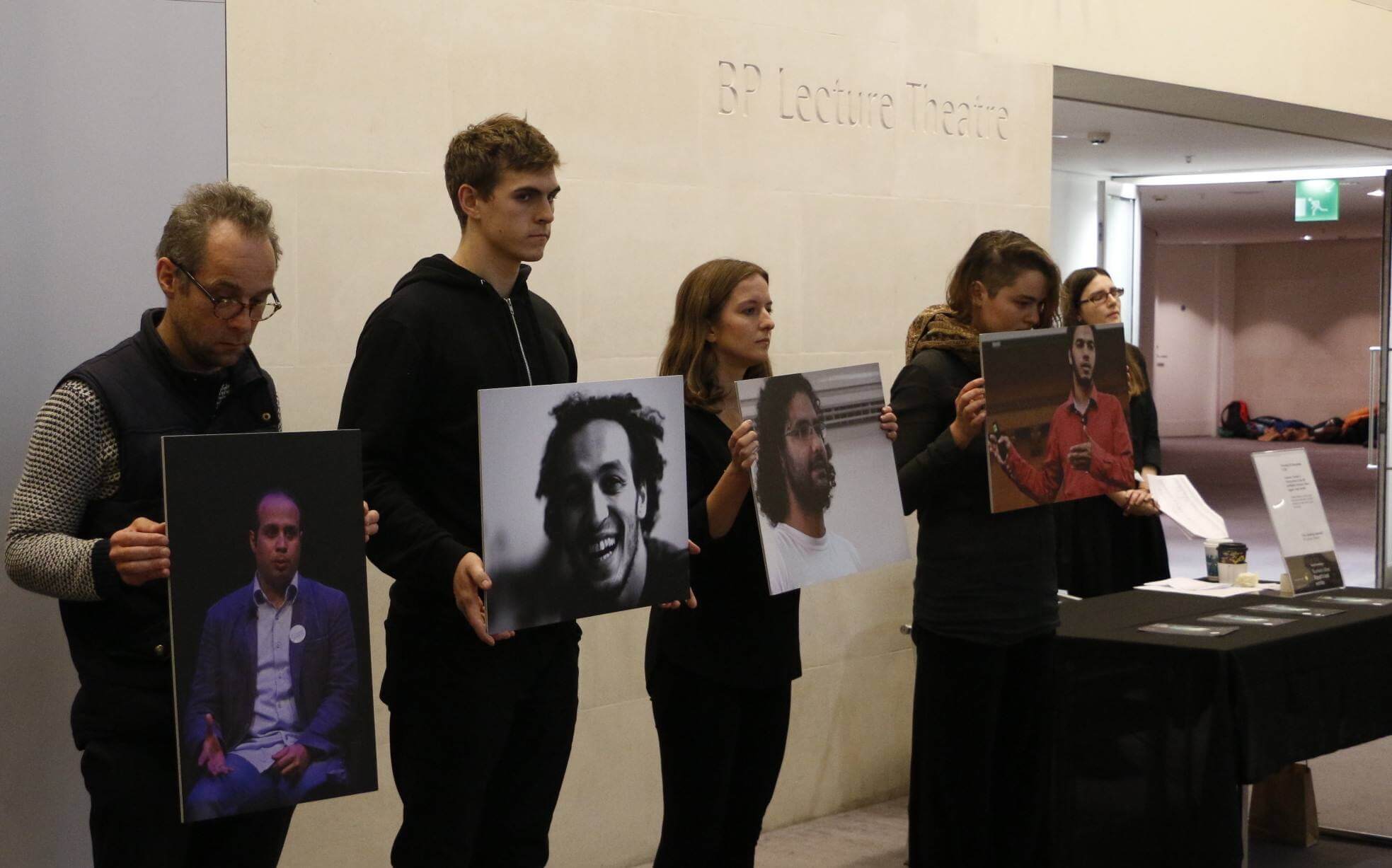
Today, at the BP sponsored British Museum, we remembered political prisoners and friends jailed in Egypt. In particular, we remembered Alaa Abd El Fattah, Aya Hejazi, Ahmed Maher, Ahmed Douma, Yousef Shabaan, Mahmoud Shawkan, and Abdullah Al Fakhrani, who are amongst the tens of thousands of dissidents imprisoned by Abdel Fattah el-Sisi’s regime.
Holding larger-than-life photographic images of Egyptian activists jailed for human rights campaigning, we stood in silence while members of the public took their seats for the ‘Curator’s Introduction to the BP Sponsored Exhibition Sunken Cities: Egypt’s Lost Worlds’ public lecture. Flyers were handed out explaining our presence. The lecture hall was packed with about 200 attendees. The vigil took the stage for 10 minutes ahead of the lecture, despite security staff’s attempts to remove us.
A big round of applause saw us off as we left the room. One Egyptian audience member came up to say thanks afterwards.
‘Sunken Cities’ is helping the Egyptian regime and BP cover up human rights and environmental abuses.
BP is the largest foreign investor in Egypt, propping up Sisi’s regime responsible for modern Egypt’s bloodiest political massacre. The oil company’s logo is splashed all over British Museum’s flagship exhibition Sunken Cities, which displays objects from ancient sunken cities in the Nile Delta, where BP is drilling just off Alexandria. A city on the frontline of rising seas. Community opposition to fossil fuels in the Nile Delta saw residents block roads, hold popular street assemblies and occupy building sites. But the military’s crackdown since 2014 has crushed dissent. BP is taking full advantage to push ahead with a massive and highly controversial gas project.
The struggle against fossil fuels is intertwined with the struggle for democracy. Yet, in recent times, the Egyptian democracy movement has had limited solidarity from social movements in the UK. Outside Egypt, they have largely been forgotten, and their families are isolated. We held this vigil to show support to jailed activists, their friends and families and to send a message that we remember them.

Abdullah Al Fakhrani is one of the prisoners we remembered today. He is an Egyptian journalist and the founder of Rassd News Network. In an open letter he writes:
“For a year and a half I have been left in an underground cell charged with the crime of “journalism”; charged with the dissemination of news – and, believe it or not, for admitting to belong to a newspaper! And yet, despite this, as a journalist in my country, I know I am lucky. Others have been killed for carrying out their work with no one asking about them or bringing their killers to justice. No one has held their killers accountable for the charges of murder, of restricting freedom, of targeting journalists – the world has forgotten or neglected them, my friend.
Freedom of expression, now, is for me to be free to write words on the walls of my cell; to shout out in my loudest voice how I feel to the fellow prisoner behind my cell door; to have the freedom to talk to the military judge overseeing my case; the freedom to choose between silence or speech that might land me in isolation. It’s the ability to hold a discussion with 20 other journalists about what occurred when we were in the court’s cage – the soundproof glass box that has been our punishment for daring to work as journalists.
Freedom of expression, my dear friend, is to talk about the killers of Charlie Hebdo and to ignore the killings of Arab journalists; condemning the killers of French journalists while being blind to the fate of others.
These are the limits of freedom of expression in my country now.”

The prisoners include many of the young writers and activists that led the January 2011 uprising for democracy. As soon as Sisi rose to power, Alaa Abd El Fattah was identified as one of the “young people of the revolution” and immediately imprisoned on flimsy charges. In 2014, he was given a 5 year sentence. The regime have terrorised his family: visiting his father in ICU and jailing his sister who demanded Alaa’s freedom. We also remembered him today. In a letter he wrote during a hunger strike, Alaa says,
“I do not fight alone to save the foundation of life. My comrades are many, even though their voices have grown faint in the huge noise of the raging battle. But my closest comrades in the fight for the right to life, the dignity of the body and the freedom of the individual have always been my family.
I ask for your prayers. I ask for your solidarity. I ask you to continue what I am no longer able to do: to struggle, to dream, to hope.”
By accepting sponsorship money from BP, the British Museum is helping BP to create a veneer of legitimacy – enabling the company to keep drilling at a time of climate crisis and against the will of Egypt’s people. Worse, this amount is paltry – between 2000 to 2011, BP’s sponsorship amounted to £596,000 a year, just 0.8% of the museum’s income. By accepting BP’s sponsorship money, the British Museum is complicit in humanitarian and environmental crimes in Egypt.
Earlier this year, the British Museum and BP renewed their partnership. Hundreds of artists are calling on the British Museum to sever its ties with fossil fuel companies like BP.
We ask you to stand with us as we remember political prisoners and friends jailed in Egypt. You can also make your own commitment at https://fossilfundsfree.org/sign-up/

This performance was organised by Platform and Deadline.